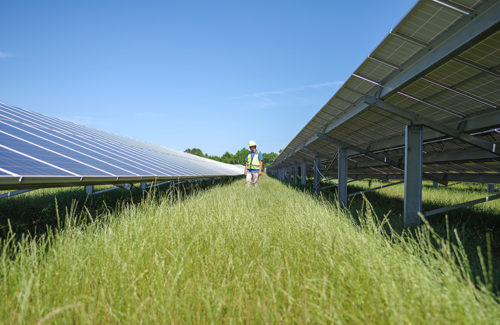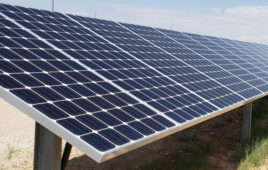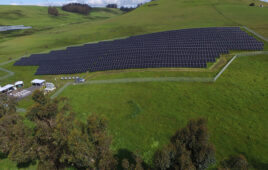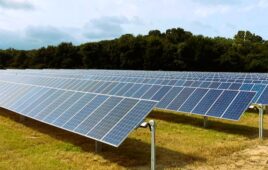On Friday, Gov. Roy Cooper and Senate President Pro Tempore Phil Berger (R-Rockingham) announced they had reached an agreement on a revised version of House Bill 951 Modernize Energy Generation. Since then, North Carolina Sustainable Energy Association (NCSEA) has carefully reviewed and discussed the bill with its diverse membership to assess its potential impact on customers, clean energy market opportunities and more.
NCSEA is grateful to Sen. Phil Berger and Gov. Roy Cooper for the deliberate approach taken in revising this important legislation, and for the opportunity for NCSEA to provide input during the legislative process. As newly written, HB951 strips former bill versions’ prescriptive mandates around uneconomic gas replacement generation and allows for the North Carolina Utilities Commission (NCUC) to determine future generation based on carbon reduction goals, reliability and least cost. It also restores the Commission’s authority to effectively regulate the monopoly utility, which had been significantly limited in a previous version.
NCSEA is grateful for these improvements, as well as for the inclusion of the following provisions:
- Establishment of one of the Southeast’s first carbon standards — and one of the few nationally — which will open additional market opportunities and increase renewable energy deployment and customers’ access in the near- and long-term;
- Strengthened securitization of coal plant retirements, which will lead to cost savings for ratepayers;
- Establishment of performance-based ratemaking to incentivize the utility to improve service in key areas such as reducing low-income energy burdens, expanding energy efficiency opportunities and supporting equity in contracting;
- Continuation of the existing Competitive Procurement of Renewable Energy (CPRE) program into 2022 before establishing an independent power producer (45%) / utility (55%) split ownership program for solar and solar + storage; and
- Opportunity provided for certain independent power providers to extend existing power purchase agreements.
Like any well-crafted compromise, however, problematic provisions remain. NCSEA shares concerns about some aspects of the bill, including:
- Reinforcement of North Carolina’s energy monopoly regulatory structure to the detriment of private businesses and customers; and
- Exclusion of all-source energy procurement, effectively closing the market to certain types of independent power producers;
- Lack of customer protections from potential utility over-earnings under new multiyear rate plan structure; and
- Inclusion of potential loopholes in the language regarding the overall reduction in carbon emissions and the solar ownership split.
NCSEA will work to address these concerns at the NCUC and, if necessary, via future legislation.
The compromise bill correctly places the authority on the NCUC to oversee a new, carbon- conscious paradigm of energy regulation and requires the Commission to take considerable responsibility in implementing a cleaner energy future. As such, NCSEA looks forward to extensive engagement with the Commission throughout the rulemaking and implementation processes.
Overall, however, the new version of HB951 marks a momentous step forward in North Carolina’s clean energy future via its decarbonization goals and opportunity for the expansion of reliable, affordable, clean energy in the state. It establishes North Carolina as a leader in its renewable energy ambitions and will continue to boost North Carolina’s $40 billion clean energy economy.
“NCSEA would like to thank Sen. Phil Berger and Gov. Cooper for their commitment to crafting meaningful energy regulatory reform legislation,” said NCSEA Executive Director Ward Lenz. “While the Senate proposed committee substitute for HB951 is not perfect, and will impact different clean energy technologies and customers in different ways, it ultimately marks an important milestone as we continue to work toward more transformational energy policies that ensure affordability and reliability for customers and deliver greater market competition.”
NCSEA is encouraged by the bipartisan support shown for HB951 and the opportunities it presents to strengthen North Carolina’s clean energy economy. NCSEA appreciates the improvements made to HB951 and looks forward to working with a diversity of stakeholders to ensure a continued transition to a clean, competitive, reliable and affordable energy future.
News item from the North Carolina Sustainable Energy Association






Tell Us What You Think!